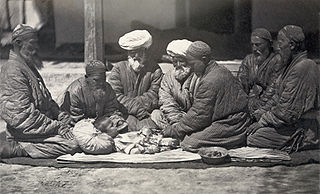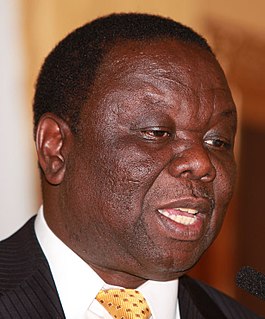Related Research Articles

Female genital mutilation (FGM), also known as female genital cutting, female genital mutilation/cutting (FGM/C) and female circumcision, is the ritual cutting or removal of some or all of the external female genitalia. The practice is found in some countries of Africa, Asia and the Middle East, and within communities abroad from countries in which FGM is common. UNICEF estimated, in 2016, that 200 million women in 30 countries—Indonesia, Iraqi Kurdistan, Yemen, and 27 African countries—had been subjected to one or more types of FGM.

Safe sex is sexual activity using methods or devices to reduce the risk of transmitting or acquiring sexually transmitted infections (STIs), especially HIV. "Safe sex" is also sometimes referred to as safer sex or protected sex to indicate that some safe sex practices do not completely eliminate STI risks. It is also sometimes used colloquially to describe methods aimed at preventing pregnancy that may or may not also lower STI risks.

Zimbabwe, officially the Republic of Zimbabwe, is a landlocked country located in Southeast Africa, between the Zambezi and Limpopo Rivers, bordered by South Africa to the south, Botswana to the south-west, Zambia to the north, and Mozambique to the east. The capital and largest city is Harare. The second largest city is Bulawayo. A country of roughly 15 million people, Zimbabwe has 16 official languages, with English, Shona, and Ndebele the most common.

The terms genital modification and genital mutilation can refer to permanent or temporary changes to human sex organs. Some forms of genital alteration are performed on adults with their informed consent at their own behest, usually for aesthetic reasons or to enhance stimulation. However, other forms are performed on people who do not give informed consent, including infants or children. Any of these procedures may be considered modifications or mutilations in different cultural contexts and by different groups of people.

HIV/AIDS originated in Africa in the early 20th century and is a major public health concern and cause of death in many African countries. AIDS rates vary dramatically although the majority of cases are concentrated in Southern Africa. Although the continent is home to about 15.2 percent of the world's population, more than two-thirds of the total infected worldwide – some 35 million people – were Africans, of whom 15 million have already died. Sub-Saharan Africa alone accounted for an estimated 69 percent of all people living with HIV and 70 percent of all AIDS deaths in 2011. In the countries of sub-Saharan Africa most affected, AIDS has raised death rates and lowered life expectancy among adults between the ages of 20 and 49 by about twenty years. Furthermore, the life expectancy in many parts of Africa is declining, largely as a result of the HIV/AIDS epidemic with life-expectancy in some countries reaching as low as thirty-nine years.
The American Academy of Pediatrics (AAP) is an American professional association of pediatricians, headquartered in Itasca, Illinois. It maintains its Department of Federal Affairs office in Washington, D.C.
Male circumcision is the surgical removal of the foreskin (prepuce) from the human penis. The ethics of circumcision in neonates and children is a source of much controversy.
In the context of high risk populations, male circumcision has been shown to reduce the risk of human immunodeficiency virus (HIV) transmission from HIV+ women to men. In 2020, the World Health Organization (WHO) reiterated that male circumcision is an efficacious intervention for HIV prevention if carried out by medical professionals under safe conditions. Circumcision reduces the risk that a man will acquire HIV and other sexually transmitted infections (STIs) from an infected female partner through vaginal sex. The effectiveness of using circumcision to prevent HIV in the developed world is unclear.

PLOS Medicine is a peer-reviewed weekly medical journal covering the full spectrum of the medical sciences. It began operation on October 19, 2004, as the second journal of the Public Library of Science (PLOS), a non-profit open access publisher. All content in PLOS Medicine is published under the Creative Commons "by-attribution" license. To fund the journal, the publication's business model requires in most cases that authors pay publication fees. The journal was published online and in a printed format until 2005 and is now only published online. The journal's acting chief editor is Clare Stone, who replaced the previous chief editor, Larry Peiperl, in 2018.

Circumcision is the removal of the foreskin from the human penis. In the most common procedure the foreskin is extended with forceps, then a circumcision device may be placed, after which the foreskin is excised. Topical or locally injected anesthesia is often used to reduce pain and physiologic stress. The procedure is usually an elective surgery performed on babies and children as a religious duty or cultural tradition, as in Israel and Islamic world; or as a prophylactic health intervention, as generally done in several Anglosphere countries and Africa. Medically, circumcision is a treatment option for problematic cases of phimosis and balanoposthitis that do not resolve with other treatments, and for chronic urinary tract infections (UTIs). It is contraindicated in cases of certain genital structure abnormalities or poor general health.

There were widespread reports of systematic and escalating violations of human rights in Zimbabwe under the regime of Robert Mugabe and his party, ZANU-PF, between 1980 and 2017.

The prevalence of circumcision is the percentage of males in a given population who have been circumcised.
The very high rate of HIV infection experienced in Uganda during the 1980s and early 1990s created an urgent need for people to know their HIV status. The only option available to them was offered by the National Blood Transfusion Service, which carries out routine HIV tests on all the blood that is donated for transfusion purposes. The great need for testing and counseling resulted in a group of local non-governmental organizations such as The AIDS Support Organisation (TASO), Uganda Red Cross, Nsambya Home Care, the National Blood Bank, the Uganda Virus Research Institute together with the Ministry of Health establishing the AIDS Information Centre in 1990. This organization worked to provide HIV testing and counseling services with the knowledge and consent of the client involved.
Zimbabwe began experiencing a period of considerable political and economic upheaval in 1999. Opposition to President Mugabe and the ZANU-PF government grew considerably after the mid-1990s in part due to worsening economic and human rights conditions. The Movement for Democratic Change (MDC) was established in September 1999 as an opposition party founded by trade unionist Morgan Tsvangirai.

The status of women in Ghana and their roles in Ghanaian society has changed over the past few decades. There has been a slow increase in the political participation of Ghanaian women throughout history. Women are given equal rights under the Constitution of Ghana, yet disparities in education, employment, and health for women remain prevalent. Additionally, women have much less access to resources than men in Ghana do. Ghanaian women in rural and urban areas face slightly different challenges. Throughout Ghana, female-headed households are increasing.

Morgan Richard Tsvangirai was a Zimbabwean politician who was Prime Minister of Zimbabwe from 2009 to 2013. He was President of the Movement for Democratic Change, and later the Movement for Democratic Change – Tsvangirai (MDC–T), and a key figure in the opposition to former President Robert Mugabe.

The foreskin is the double-layered fold of smooth muscle tissue, blood vessels, neurons, skin, and mucous membrane part of the penis that covers and protects the glans penis and the urinary meatus. The foreskin is mobile, fairly stretchable, and acts as a natural lubricant. The foreskin is also described as the prepuce, a technically broader term that also includes the clitoral hood in women, to which the foreskin is embryonically homologous.
HIV prevention refers to practices that aim to prevent the spread of the human immunodeficiency virus (HIV). HIV prevention practices may be undertaken by individuals to protect their own health and the health of those in their community, or may be instituted by governments and community-based organizations as public health policies.

Circumcision surgical procedure in males involves either a conventional "cut and stitch" surgical procedure or use of a circumcision instrument or device. In the newborn period, almost all circumcisions are done by generalist physicians using one of three surgical instruments. In the US, the Gomco clamp is the most utilized instrument, followed by the Mogen clamp and the Plastibell. They are also used worldwide.
Traditional gender roles in Egypt are prevalent and clearly defined. These roles are largely associated with traditional Islamic family structures, wherein women's roles are closely tied to the domestic sphere and men's roles tied to the public sphere. Gender roles are based on assumed biological differences between the sexes and can lead to dramatically different life experiences as well as opportunities and outcomes for individuals. Consequently, when looking at a number of indicators, women often find themselves disadvantaged relative to men.
References
- ↑ "Morgan Femai". Global Leadership Project. Archived from the original on 13 July 2012. Retrieved 14 May 2012.
- ↑ "HIV:Senator wants women to stop bathing". ZimEye. 12 May 2012. Retrieved 15 May 2012.
- ↑ Nelson, Sara C (14 May 2012). "Curb HIV With Female Circumcision And Shaving Heads, Says Zimbabwe Politician Morgan Femai". The Huffington Post. Retrieved 14 May 2012.
- ↑ Share, Felex (15 May 2012). "Women blast MDC-T's Femai". The Herald Online. Retrieved 15 May 2012.